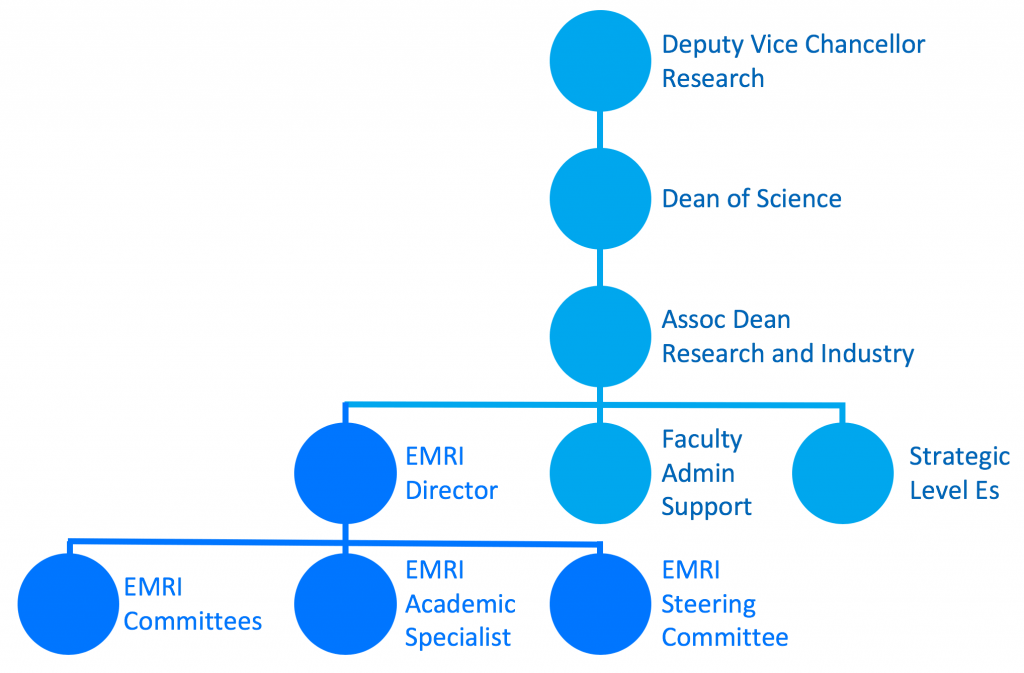Home
The Environmental Microbiology Research Initiative (EMRI) is a research consortium that investigates the complex microbial networks, or microbiomes, which form a critical component of Earth’s environmental systems.
We’ve only recently begun to gain insights into the vastness, complexity and dynamism of Earth’s microbiomes along with the deep connections between microbiomes and human and ecosystem health and climate change.
Recently, leading researchers across a range of disciplines have converged on the common goal of understanding the diversity, structure, function and resilience of environmental microbiomes.
EMRI facilitates the cross-disciplinary collaborations and builds the capacity in next generation tools required to deliver on this objective.
EMRI collaborators span the following faculties at the University of Melbourne: Science; Engineering; Medicine, Dentistry and Health Sciences; Veterinary and Agricultural Sciences; and Arts.
Research Overview
- Research Program Overview
EMRI RESEARCH PROGRAM
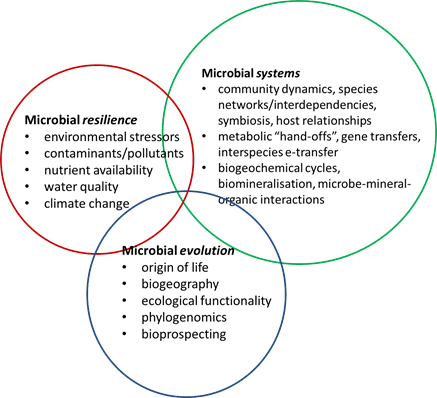 EMRI research is grouped into three interconnected themes of microbial resilience, microbial systems and microbial evolution. The three themes underpin the research program that will address five key research objectives:
EMRI research is grouped into three interconnected themes of microbial resilience, microbial systems and microbial evolution. The three themes underpin the research program that will address five key research objectives:- Contribute strategically to the growing global catalogue of environmental genomes and metagenomics datasets
- Understand key environmental factors that shape microbial communities
- Predict adaptations in microbial communities and their functionality under changing environmental conditions
- Identify novel metabolic/enzymatic pathways for nutrient cycling or contaminant remediation
- Use metagenomics to drive cultivation-based hypothesis-testing experiments and selective enrichment/species isolations.
EMRI Outcomes
- 2017-2019
2019
International Conference Organising Committee Membership:
- Gordon Research Conference – Marine Molecular Ecology (Novel Insights into Marine Patterns and Processes) 14-19 July, 2019 Hong Kong. Madeleine van Oppen (organising chair) and Linda Blackall (vice chair).
- Microscale Ocean Biophysics 5.0. 10-16 January, 2019, Whistler, Canada. Douglas Brumley on the organising committee and invited speaker.
2018
EMRI 2nd General Workshop held on 17th August, 2018.
EMRI Personel:
- Dr Kim-Anh Lê Cao wins 2019-2022 Career Development Fellowship (CDF2) from the National Health and Medical Research Council (NHMRC) ‘Microbiome biomarkers of human disease: novel computational methods to facilitate therapeutic developments’, $483K.
- Prof Karen Day (Dean of the Faculty of Science) awarded the title of Redmond Barry Distinguished Professor for her outstanding leadership within the University’s professoriate.
- EMRI funds 2 PhD students (2018-2021) – Mr Francesco Ricci and Mr Heyu Lin.
- Prof Madeleine van Oppen wins Australian Research Council (ARC) Laureate Award for Engineering microbial symbionts that increase coral climate resilience (2019-2023; $3,011,916).
- Dr Douglas Brumley wins ARC Discovery Early Career Researcher Award for The mechanisms driving microbial navigation in marine systems (2018 - 2021; $348,575)
- Prof Jillian Banfield receives 2018 UK Microbiology Society Prize Medal.
- Prof Jillian Banfield elected as a Fellow of the Royal Society (FRS)
Outreach:
- EMRI scientists host 3 Uni Melbourne symposia (till August, 2018)
International Conference Presentations:
- The 17th International Symposium on Microbial Ecology Leipzig, Germany – Ms Katarina Damjanovic, Ms Giada Tortorelli, Mr Leon Hartman
- The 9th International Symbiosis Society Congress Corvallis, Oregon, USA – Ms Ashley Dungan, Ms Giada Tortorelli, Prof Linda Blackall
2017
EMRI 1st General Workshop held on 11th July, 2017.
EMRI Personel:
- Prof Jillian Banfield wins prestigious VM Goldschmidt Award from the Geochemical Society.
- EMRI academics appointed (0.4 FTE) – Prof Jillian Banfield, Prof Linda Blackall.
Funding:
- Dr Heroen Verbruggen, Prof Linda Blackall, Assoc Prof Kat Holt for Hybrid assembly of holobiont genomes in the coral skeleton ($19,971; seed funding from Univ Melbourne Computational Biology Research Initiative)
Publications:
- Damjanovic K, Blackall LL, Webster NS, van Oppen MJH (2017) The contribution of microbial biotechnology to mitigating coral reef degradation. Microbial Biotechnology, doi:10.1111/1751-7915.12769.
Outreach:
- Prof Madeleine van Oppen featured on ABC Catalyst
- EMRI scientists host 7 Uni Melbourne symposia
EMRI Governance
- Governance Structure
- Steering Committee
STEERING COMMITTEE
Prof Linda Blackall (Chair, EMRI Director, Faculty of Science, School of BioSciences/School of Earth Sciences)
Prof Jillian Banfield (Faculty of Science, School of Earth Sciences
Prof Laura Parry (Faculty of Science, School of BioSciences)
Prof Ute Roessner (Faculty of Science, School of BioSciences)
Prof Jim He (Faculty of Veterinary and Agricultural Sciences, School of Agriculture and Food)
Dr Robyn Schofield (Faculty of Science, School of Earth Sciences)
Prof Robyn Sloggett (Faculty of Arts, Grimwade Centre)
Prof Dick Strugnell (Faculty of Medicine, Dentistry and Health Sciences, Department of Microbiology & Immunology)
Prof Michael Stumpf (Faculty of Science, Melbourne Integrative Genomics/School of BioSciences)
Prof Andrew Western (Faculty of Engineering)
EMRI Committees
- Bioinformatics and Statistics Committee
The Bioinformatics and Statistics Committee ensures that EMRI researchers are kept abreast of information, skills, hardware/software and training courses in this field at the University of Melbourne. The committee will be aware of EMRI needs via surveys and other communications methods. It is anticipated that EMRI will facilitate specific courses and the committee will lead or oversee and ensure broadcasting of them.
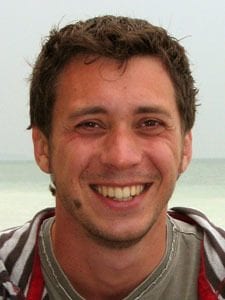 Dr Heroen Verbruggen (Faculty of Science, School of BioSciences) (Chair)
Dr Heroen Verbruggen (Faculty of Science, School of BioSciences) (Chair)- Heroen's interests span the fields of algal evolution, microbial symbiosis, genome evolution and bioinformatics. Heroen's research into the evolutionary diversification of marine algae, uses molecular phylogenetics to explore their diversification and answer specific questions about their evolution. Bioinformatics and phylogenetics take a central position in his approach to research questions.
 Dr Dieter Bulach (Melbourne Bioinformatics and Faculty of Medicine, Dentistry and Health Sciences) (Deputy Chair)
Dr Dieter Bulach (Melbourne Bioinformatics and Faculty of Medicine, Dentistry and Health Sciences) (Deputy Chair)- Dieter is an experienced bioinformatician specialising in microbial genomics. He is the European Molecular Biology Laboratory-Australian Bioinformatics Resource (EMBL-ABR) Activity Lead for Prokaryotes Bioinformatics. He works on a range of public health projects at the Peter Doherty Institute. Dieter specialises in both microbiology and bioinformatics, working on several major projects dealing with viruses and bacteria, especially pathogens.
 Dr Kim-Anh Lê Cao (Melbourne Integrative Genomics and Faculty of Science, School of Mathematics and Statistics)
Dr Kim-Anh Lê Cao (Melbourne Integrative Genomics and Faculty of Science, School of Mathematics and Statistics)- Kim-Anh's main research focus is on variable selection for biological data (`omics' data) coming from different functional levels by the means of multivariate dimension reduction approaches. Since 2009, her team has been working on developing the statistical R toolkit mixOmics that is dedicated to the integrative analysis of `omics' data, to help researchers make sense of biological big data.
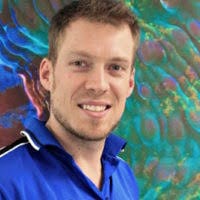 Dr Patrick Buerger (CSIRO and Faculty of Science, School of BioSciences)
Dr Patrick Buerger (CSIRO and Faculty of Science, School of BioSciences)- Patrick is a postdoctoral researcher with CSIRO's Synthetic Biology Future Science Platform and the University of Melbourne. His research focuses on climate change and anthropogenic impacts on coral reef ecosystems and he uses genetic engineering and a range of Omics technologies to investigate the thermal resilience of algal symbionts in corals.
 Ms Evelyn Chou (Faculty of Science, School of BioSciences)
Ms Evelyn Chou (Faculty of Science, School of BioSciences)- Evelyn is a graduate researcher who explores density-dependent cell-cell chemical communication (quorum sensing) in the malaria parasite Plasmodium falciparum. Her work has shown that P. falciparum undergoes density-dependent cell death characterized by changes in parasite gene expression that are associated with sexual stage transmission, programmed cell death and clonal variation (a key regulator of infection and host interaction). Evelyn combines cellular and molecular biology, biochemistry, metabolomics, functional genomics, and bioinformatics to identify and understand the mechanisms underlying these responses.
 Prof Linda Blackall – EMRI Director
Prof Linda Blackall – EMRI Director
- Social Science and Ethics Committee
Practical applications of discovery in environmental microbiology involve engaging with society. For example, water generated from bioremediation of polluted water could be used for irrigation and food grown on such irrigated land might be deemed negatively by some cohorts in society. Thus, attention to society's thoughts and opinions and to their embracing environmental microbiology applications must be considered early in several research projects. Our research and how our discoveries can benefit humanity and the environment must be communicated to the public early in the work timetable and in an effective manner.
 Prof Yoshihisa Kashima (Faculty of Medicine, Dentistry and Health Sciences; ykashima@unimelb.edu.au) (Chair)
Prof Yoshihisa Kashima (Faculty of Medicine, Dentistry and Health Sciences; ykashima@unimelb.edu.au) (Chair)- Yoshi's current research goal is to develop a social psychological theory of cultural dynamics, that is, how concrete individuals’ context specific activities in interaction with each other can generate and transform what we call culture. More specific projects include cultural comparisons in self and identity, narrative social influence in cultural transmission and transformation, cultural dynamics of nationalism, patriotism, and stereotyping, and connectionist modelling of cultural processes.
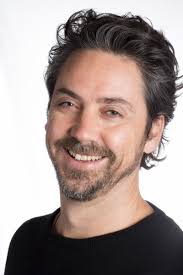 Dr Brock Bastian (Faculty of Medicine, Dentistry and Health Sciences; brock.bastian@unimelb.edu.au)
Dr Brock Bastian (Faculty of Medicine, Dentistry and Health Sciences; brock.bastian@unimelb.edu.au)- In his search for a new perspective on what makes for the good life, Brock has studied why promoting happiness may have paradoxical effects; why we need negative and painful experiences in life to build meaning, purpose, resilience, and ultimately greater fulfilment in life; and why behavioural ethics is necessary for understanding how we reason about personal and social issues and resolve conflicts of interest.
 Prof Madeleine van Oppen (Faculty of Science; madeleinevan@unimelb.edu.au)
Prof Madeleine van Oppen (Faculty of Science; madeleinevan@unimelb.edu.au)- Her research focuses on microbial symbiosis in corals, adaptation/acclimatisation to climate change, and connectivity of coral reefs. Her work is increasingly focusing on ‘assisted evolution’, where mechanisms of adaptation and acclimatisation in corals and genetic manipulations to enhance stress tolerance and fitness of corals in a changing environment are explored.
 Dr Kate Howell (Faculty of Veterinary and Agricultural Sciences; khowell@unimelb.edu.au)
Dr Kate Howell (Faculty of Veterinary and Agricultural Sciences; khowell@unimelb.edu.au)- Kate studies food biochemistry and microbial ecology, by investigating yeast and bacterial communities in food ecosystems. Of interest are biochemical pathways of yeasts that influence flavour production during fermentations in a range of different foods and beverages.
- Graduate Researcher Association
Dr Douglas Brumley (Chair) (School of Mathematics and Statistics, Faculty of Science)

- Colloquium Committee
EMRI Director
Professor Linda Blackall, Faculty of Science – School of BioSciences and School of Earth Sciences
Academics
Much of EMRI research is multi-disciplinary with Lead Academics located in their domain-specific home faculties.
- Faculty of Science
EMRI investigators are in the Schools of BioSciences, Earth Sciences, and Mathematics and Statistics. Michelle Ward, provides Administration and Support from the Faculty of Science.
Alex Andrianopoulos, School of BioSciences
Jillian Banfield, School of Earth Sciences
Linda Blackall, School of BioSciences and School of Earth Sciences
Douglas Brumley, School of Mathematics and Statistics
Mike Duffy, School of BioSciences and Honorary at Royal Melbourne Hospital
Ralf Haese, School of Earth Sciences
Ary Hoffman, School of BioSciences
Alexander Idnurm, School of BioSciences
Alex Johnson, School of BioSciences
Kim-Anh Lê Cao, School of Mathematics and Statistics
Michael McCarthy, School of BioSciences
John Moreau, School of Earth Science
Laura Parry, School of BioSciences
Ute Roessner, Head of School, School of BioSciences
Robyn Schofield, School of Earth Sciences
Madeleine van Oppen, School of BioSciences
Heroen Verbruggen, School of BioSciences
Peter Vesk, School of BioSciences
- Faculty of Veterinary and Agricultural Science
EMRI investigators are in the School of Agriculture and Food. Many are in the Centre for Healthy Soils for Sustainable Food Production and Environmental Quality, whose manager is Dr Ee-Ling Ng.
Deli Chen, School of Agriculture and Food
Jim He, School of Agriculture and Food
Kate Howell, School of Agriculture and Food
Hang-Wei Hu, School of Agriculture and Food
Herbert Kronzucker, School of Agriculture and Food
Ee-Ling Ng, Centre Manager
Tony Weatherley, School of Agriculture and Food
- Faculty of Medicine, Dentistry and Health Sciences
EMRI investigators are in the School of Biomedical Sciences, (Dept of Microbiology and Immunology, Dept of Biochemistry and Molecular Biology, Melbourne Diagnostics Unit), the Melbourne Dental School and Melbourne Advanced Microscopy. They are located in the Peter Doherty Institute, Bio21 and the Melbourne Dental School.
Sammy Bedoui, Department of Microbiology and Immunology
Andrew Brooks, Department of Microbiology and Immunology
Dieter Bulach, Department of Microbiology and Immunology
Stuart Dashper, Melbourne Dental School
Mark Davies, Department of Microbiology and Immunology
Zoe Dyson, Department of Biochemistry and Molecular Biology, Bio21 Institute
Eric Hanssen, Department of Biochemistry and Molecular Biology and Advanced Microscopy Facility, Bio21 Institute
Kathryn Holt, Department of Biochemistry and Molecular Biology, Bio21 Institute
Ben Howden, Molecular Diagnostics Unit, Peter Doherty Institute
Stephan Kaiser, Administration Support, Department of Microbiology and Immunology
Andre Mu, Peter Doherty Institute
Hayley Newton, Department of Microbiology and Immunology
Timothy Stinear, Department of Microbiology and Immunology
Dick Strugnell, Department of Microbiology and Immunology
Karena Waller, Department of Microbiology and Immunology
- Faculty of Engineering
EMRI investigators are in the Melbourne School of Engineering – School of Chemical and Biomedical Engineering and School of Electrical, Mechanical and Infrastructure Engineering (Department of Infrastructure Engineering)
Sally Gras, Chemical and Biomedical Engineering
Anne Steinemann, Infrastructure Engineering
Geoff Stevens, Chemical and Biomedical Engineering
Michael Stewardson, Infrastructure Engineering
Andrew Western, Infrastructure Engineering
- Faculty of Arts
EMRI investigators are in the Grimwade Centre for Cultural Materials Conservation.
Caroline Kyi, Grimwade Centre
Robyn Sloggett, Grimwade Centre
Researchers
- Postgraduate Researchers
Courses, seminars are run for Graduate Researchers by Professional Development for Graduate Researchers.
EMRI Funded
 Mr Francesco Ricci (2018-2021) (riccif@student.unimelb.edu.au)
Mr Francesco Ricci (2018-2021) (riccif@student.unimelb.edu.au)- Supervisors: Dr Heroen Verbruggen, Prof Linda Blackall, Prof Michael Kühl (University of Copenhagen, Denmark).
- Project Title: Physicochemical micro-niches in the coral skeleton and their relation to the microbiome
- Brief Description: I investigate the micro-niches within the calcium carbonate skeleton of scleractinian (stony or hard) corals, using planar optode imaging to analyse their physicochemical properties and molecular techniques to characterise the associated microbiota.
 Mr Heyu Lin (2018-2021) (heyu.lin@student.unimelb.edu.au)
Mr Heyu Lin (2018-2021) (heyu.lin@student.unimelb.edu.au)- Supervisors: Dr John Moreau, Assoc Prof Kat Holt
- Project Title: Investigating the potential for mercury methylation by marine micro aerophilic bacteria
- Brief Description: This project will employ culturing-based and culture-independent techniques to understand the mechanisms for microbial mercury methylation in aerobic marine water columns. We will be looking for new genes and pathways employed by marine bacteria to metabolize or resist anthropogenic mercury contamination, in order to investigate the role of bacteria in the marine biogeochemical mercury cycling.
EMRI Affiliated Postgrads
 Ms Evelyn Chou (2014-2018) (echou@student.unimelb.edu.au)
Ms Evelyn Chou (2014-2018) (echou@student.unimelb.edu.au)- Supervisors: Prof Karen Day, Dr Michael Duffy
- Project Title: Characterization and mechanisms of a novel density-dependent death phenotype in Plasmodium falciparum
- Brief Description: I explore quorum sensing in the malaria parasite Plasmodium falciparum, a form of cell-cell communication in which unicellular organisms count themselves through the secretion and reception of signaling molecules. Responses to quorum sensing can include the production of inhibitory factors that prevent or reduce growth and proliferation. P. falciparum parasites are temporally exposed to conditions of high parasite density during sequestration in the microvasculature, providing the ideal environment for density-dependent differential behavior. I show that P. falciparum undergoes density-dependent cell death characterized by changes in parasite gene expression that are associated with sexual stage transmission, programmed cell death and clonal variation (a key regulator of infection and host interaction). I also combine cellular and molecular biology, biochemistry, metabolomics, functional genomics, and bioinformatics to identify and understand the mechanisms underlying these responses.
 Ms Allene Macabuhay (2018-2022) (amacabuhay@student.unimelb.edu.au)
Ms Allene Macabuhay (2018-2022) (amacabuhay@student.unimelb.edu.au)- Supervisors: Prof Ute Roessner, Assoc Prof Alex Johnson, Prof Michelle Watt (Forschungszentrum Jülich, Germany), Dr. Borjana Arsova (Forschungszentrum Jülich, Germany)
- Project Title: The role of lipids in the formation of beneficial interactions between plant roots and soil microbiota under heat stress
- Brief Description: The plant root-soil microbe interface is a major frontier with potential opportunities for addressing crop agricultural challenges, especially under abiotic stress. This study will harness specific plant growth promoting soil microbes and demonstrate their beneficial effects using the model plant, Arabidopsis thaliana, under heat stress. In particular, we aim to investigate the biochemical nature of the plant-microbe interaction, focusing on lipids as key signalling molecules, and explore how temperature under predicted global warming scenario will impact this interaction using high-throughput shoot and root phenotyping platforms and state-of-the-art lipidomics technologies.
 Zhenzhen Yan (2017-2021) (zheny2@studnt.unimelb.edu.au)
Zhenzhen Yan (2017-2021) (zheny2@studnt.unimelb.edu.au)- Supervisors: Dr Hang-Wei Hu, Prof Jim (Jizheng) He
- Project Title: Understanding the Core Resistome and Microbiome in Urban Environment
- Brief Description: Gaol: Identify the core resistome and core microbiome (the most common and ubiquitous antibiotic resistance genes and bacterial phylotypes) in urban environment. Explore factors that shape the microbial community structure and impact on resistome in urban environment.
 Chaoyu Li (2017-2021) (chaoyul@student.unimelb.edu.au)
Chaoyu Li (2017-2021) (chaoyul@student.unimelb.edu.au)- Supervisors: Prof Jim (Jizheng) He, Dr Hang-Wei Hu, Prof Deli Chen
- Project Title: Understanding the role of the newly-discovered comammox bacteria to nitrification in terrestrial ecosystems
- Brief Description: A recent discovery found that the complete ammonia oxidizers within the Nitrospira genus are capable of converting NH3 to NO3- in a single organism. It was called “comammox Nitrospira”. This project will assess the environmental prevalence and functional importance of comammox Nitrospira, and to re-evaluate the relative contribution of comammox Nitrospira and canonical nitrifiers to nitrification in terrestrial ecosystems.
-18nlw0u-209x300.jpg) Yujing Zhang (2015-2019) (zhangy15@student.unimelb.edu.au)
Yujing Zhang (2015-2019) (zhangy15@student.unimelb.edu.au)- Supervisors: Prof Jim He, Prof. Deli Chen, Dr Hang-Wei Hu
- Project Title: Transmission of antibiotic resistance genes (ARGs) in Agro-ecosystems.
- Brief Description: Investigate the abundance, diversity and transmission potential of ARGs in various animal manures and Australian agro-ecosystems. Explore the major routes for transmission of ARGs from the rhizosphere to vegetables grown in soils.
 Mr Marcos Yianis Voutsinos (mvoutsinos@student.unimelb.edu.au)
Mr Marcos Yianis Voutsinos (mvoutsinos@student.unimelb.edu.au)- Supervisors: Dr John Moreau, Prof Jillian Banfield (Univ Melbourne, Univ California, Berkeley, USA)
- Project Title: Geomicrobiology of rare earth elements
- Description: The project aims to discover novel microbial compounds that liberate rare earth elements and phosphorus from minerals. By focusing on the interactions between soil microorganisms and lanthanide-phosphate minerals, this proposal seeks to understand how microbes break down these highly insoluble secondary minerals in the environment. Expected outcomes include new strategies for accessing phosphorus in depleted agricultural soils and recovering lanthanides from currently uneconomical mine tailings. This project will provide new knowledge of the microbially-controlled processes mediating the biogeochemical cycling of phosphorus and lanthanides in nature, for harnessing to improved land management and economical resource extraction.
 Mr Angus Keillar (2016-2020) (rkeillar@student.unimelb.edu.au
Mr Angus Keillar (2016-2020) (rkeillar@student.unimelb.edu.au- Supervisors: Dr Jay Black, Dr John Moreau, Dr Andre Mu
- Project Title: Understanding microbial responses to supercritical CO2 stress, and the implications for CO2 geosequestration
- Description: In this research, we will use a high-pressure and temperature experimental apparatus to simulate geological conditions at 1-2 km below the Earth’s surface, where supercritical carbon dioxide will be stored in large plumes that may trigger microbial metabolic responses with consequence for aquifer geochemistry and mineralogy. Specifically, we are interested in the viability of microbial biofilms that might help trap or limit the migration of subsurface supercritical carbon dioxide plumes.
 Mr Farhad Shafiei (2018-2021) (fshafiei@student.unimelb.edu.au)
Mr Farhad Shafiei (2018-2021) (fshafiei@student.unimelb.edu.au)- Supervisors: Dr Mathew Watts, Dr John Moreau, Dr Berin Boughton
- Project title: Determining microbial community structure and metabolic pathway changes in a thiocyanate biodegradation system under environmental perturbations
- Description: This project will examine how bioreactor microbial communities self-structure and metabolise thiocyanate and intermediation breakdown products during thiocyanate bioremediation of mining wastewater. We are particularly interested in resolving the species-dependent metabolic “handoffs” of nitrogen, sulfur and carbon, with broader implications for these biogeochemical cycles in both industrial-scale bioremediation systems and natural aqueous environments.
 Ms Ashley Dungan (2017-2020) (adungan@student.unimelb.edu.au)
Ms Ashley Dungan (2017-2020) (adungan@student.unimelb.edu.au)- Supervisors: Prof Linda Blackall, Prof Madeleine van Oppen
- Project Title: The exploration of bacterial probiotics in the model organism Exaiptasia pallida to increase climate resilience in corals
- Brief Description: The goal of my research is to develop a probiotic to mitigate the effects of thermal stress in E. pallida by understanding the phenotypic and genetic traits of their symbiotic bacteria and how these bacteria might neutralize toxic reactive oxygen species. I use pure culturing techniques, fluorescence in situ hybridisation, whole genome sequencing, metabarcoding, and physiological assessment of the anemone host to answer my questions.
 Ms Katarina Damjanovic (2015-2019) (kdamjanovic@student.unimelb.edu.au)
Ms Katarina Damjanovic (2015-2019) (kdamjanovic@student.unimelb.edu.au)- Supervisors: Prof Linda Blackall, Prof Madeleine van Oppen
- Project Title: Manipulating prokaryotic symbionts to enhance coral tolerance to stress
- Brief Description: This project consists in exploring the feasibility of manipulating the coral prokaryotic microbiome by targeted exposures into the laboratory and gaining insights into the transmission mode of bacteria and Symbiodinium in corals with different reproductive strategies.
 Miss Giada Tortorelli (2017-2020) (gtortorelli@unimelb.edu.au)
Miss Giada Tortorelli (2017-2020) (gtortorelli@unimelb.edu.au)- Supervisors: Prof Geoff McFadden, Prof Madeleine van Oppen, Prof Simon Davy (Victoria University of Wellington, New Zealand)
- Project title: Dissecting the symbiotic partnership between algae and animals that powers coral reefs
- Brief description: I am interested in the really initial steps during the establishment of symbiosis between Cnidaria and Symbiodinium. My main aim is to dissect the inter-partner molecular signalling that allows recognition between host and photosymbionts in the setup of symbiosis.
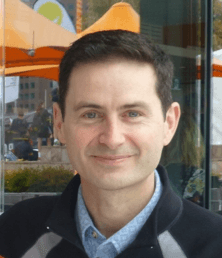 Mr Leon Hartman (2016-2020) (leon.hartman@unimelb.edu.au)
Mr Leon Hartman (2016-2020) (leon.hartman@unimelb.edu.au)- Supervisors: Prof Linda Blackall, Prof Madeleine van Oppen, Prof Damien Hicks (Swinburne University of Technology)
- Project Title: Manipulation of prokaryotic communities in the coral model organism: Exaiptasia pallida
- Brief Description: We are establishing Australia’s first cultures of the coral model organism, E. pallida, and characterising its prokaryotic communities. Having access to this model and its baseline microbiome data will facilitate investigation of coral bleaching mitigation strategies, particularly inoculation with probiotic bacteria, which is the focus of my work.
 Mr. Alex Jaimes Castillo (2016-2020) (ajaimescastillo@swin.edu.au)
Mr. Alex Jaimes Castillo (2016-2020) (ajaimescastillo@swin.edu.au)- Supervisors: Prof Linda Blackall, Dr Tony Weatherley,
Dr Daniel Eldridge, Dr Bita Zaferanloo (Swinburne University of Technology)
- Project Title: Microbial Ecology of Urban Organic Waste Treatment (Compost).
Description: My research focuses on the identification of prokaryotic microorganisms during the composting of food waste. To accelerate the composting process, an eco-efficient in-vessel composter called "Cylibox" was developed, which provides optimal conditions for microbial activity, where endogenous heating increases the temperature above 65°C, which pasteurises the compost. The active phase of composting only takes nine days and the curing phase finishes in two months. After the metagenomic analysis, we found the tendency of the compost microbiome. The active phase of composting is dominated by Firmicutes and Proteobacteria, in contrast, Bacteroides have greater abundance in the curing phase. Hence, the mature compost is safe and of good quality, ready to be applied in the soil for sustainable agriculture or gardening.
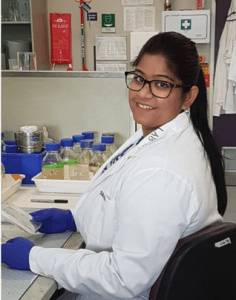 Ms. Sneha Gupta (2016-2019) (snehag@student.unimelb.edu.au)
Ms. Sneha Gupta (2016-2019) (snehag@student.unimelb.edu.au)- Supervisors: Prof Ute Roessner, Assoc Prof Penelope Smith (La Trobe University, Victoria, Australia), Dr. Siria Natera
- Project Title: The effect of salt stress on below ground biology
- Brief Description: This project aims to study the root-soil-microbe nexus which includes the spectrum of relationships between plant and microbes that span from pathogenic to mutually beneficial. With the focus on salinity stress, we will be able to add new understanding to this complex landscape investigating the chemical dialogue of these interactions along with the information on colonization of beneficial microbes specifically Trichoderma harzianum T-22 into roots under one of the greatest abiotic stresses, salinity, affecting agricultural production worldwide. This will be achieved by deploying biochemical analysis that will reveal information on chemical statement on these interactions, using various high-end metabolomics tools.
 Mr Martino Schillaci (2017-2021) (mschillaci@student.unimelb.edu.au)
Mr Martino Schillaci (2017-2021) (mschillaci@student.unimelb.edu.au)- Supervisors: Prof Ute Roessner, Assoc Prof Penelope Smith (La Trobe University, Victoria, Australia), Prof Michelle Watt (Forschungszentrum Jülich, Germany), Dr Borjana Arsova (Forschungszentrum Jülich, Germany)
- Project Title: The Impact of beneficial Microbes on Root Architecture and Metabolism of the Model Grass Brachypodium distachyon grown under non-optimal Temperatures
- Brief Description: During my PhD I will investigate the interaction between Brachypodium distachyon and the plant growth promoting bacterium Azospirillum brasilense at sub-optimal temperatures. In particular, I am focusing on the effect of bacterial colonization on Brachypodium's roots phenotype, transcriptome, proteome and metabolome at different time points. The aim of my project is to study which metabolic pathways are mainly influenced during the plant-bacterium interplay at various temperature scenarios.
 Ms Michela Winters (2018-2022) (mwinters@student.unimelb.edu.au)
Ms Michela Winters (2018-2022) (mwinters@student.unimelb.edu.au)- Supervisors: Dr Kate Howell, Prof Rudi Appels (Murdoch University), Assoc Prof Nils Arneborg (University of Copenhagen, Denmark)
- Project Title: Community ecosystems in food and beverage fermentations: the role of yeasts in quorum sensing in mixed culture fermentations.
- Brief Description: This project will investigate the phenomenon of quorum sensing in Saccharomyces cerevisiae with the overall goal of providing an understanding of the interactions between different microbial species during food and beverage fermentations.
 Ms Di (Echo) Liu (2016-2020) (dil4@student.unimelb.edu.au)
Ms Di (Echo) Liu (2016-2020) (dil4@student.unimelb.edu.au)- Supervisors: Dr Kate Howell, Prof Deli Chen, Dr Pangzhen Zhang
- Project Title: Microbial Terroir: Understanding the importance of the soil microbial community to Australian winemaking
- Brief Description: This project aims to examine microbial terroir as a crucial factor of wine terroir, which describe the regional variation in grape and wine quality characteristics. Investigate soil-borne community across multi-scale viticultural zones in Victoria to validate microbial biogeography associated with local climate, geography, and soil properties. Identify key taxa for microbial biogeography and wine characteristics. Explore potential translocation of soil-borne microbes to grapevines. In doing this, we expect to quantify wine terroir and provide new insights to agriculture management.
- Postdoctoral and Early Career Researchers
 Dr Patrick Buerger (2017 – 2020) (patrick.buerger@unimelb.edu.au)
Dr Patrick Buerger (2017 – 2020) (patrick.buerger@unimelb.edu.au)- Collaborators: Prof Madeleine van Oppen, Dr John Oakeshott (CSIRO, Canberra), Dr Owain Edwards (CSIRO, Canberra)
- Project Title: Enhancing the thermal tolerance of coral algal symbionts through genetic engineering.
- Brief Description: My research project is focused on climate change and anthropogenic impacts on coral reef ecosystems. Using genetic engineering and a range of Omics techniques, Patrick leads investigations into the thermal resilience of algal symbionts in corals.
- Current Supervision: Master of Science student Ms Ruby Vanstone (Univ Melbourne).
 Dr Robert Walker (2018-2021) (walker.r@unimelb.edu.au)
Dr Robert Walker (2018-2021) (walker.r@unimelb.edu.au)- Collaborators: Prof Ute Roessner.
- Potential Collaborations: Legume/rhizobia research groups at University of California Los Angeles and Western Australian institutions.
- Project Area: Plant microbe interactions.
- Brief Description: My research focuses on endophytic, symbiotic and rhizospheric microorganisms and their role in enhancing plant growth by exploring mechanisms involved in increased nutrient uptake, soil health, plant defence priming and plant and microbial biochemical interactions. By understanding the synergistic relationships between not only plant and microbial communities but also exudates and microbial compounds, I seek to harness beneficial plant growth-promoting microbes to build on and improve agricultural practices in the face of substantial global food security risks.
 Dr Wing Yan Chan (2019 – 2023) (wingc4@student.unimelb.edu.au)
Dr Wing Yan Chan (2019 – 2023) (wingc4@student.unimelb.edu.au)- Collaborators: Prof Madeleine van Oppen, Dr John Oakeshott (CSIRO, Canberra), Dr Owain Edwards (CSIRO, Canberra), Dr Manuel Aranda (King Abdullah University of Science and Technology, Saudi Arabia
- Project Title: Enhancing coral climate resilience via bio-engineering of algal endosymbionts
- Brief Description: My research focuses on bio-engineering of coral-associated algal endosymbionts to enhance coral climate resilience and success of coral reef conservation programs.
- Current Supervision: Master of Science student Ms Sarah-Jane Tsang Min Ching (University of Melbourne).
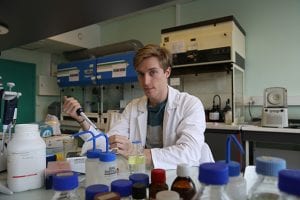 Dr Justin Maire (2019-2023)
Dr Justin Maire (2019-2023)- Collaborators: Prof Madeleine van Oppen, Prof Linda Blackall, Dr Stephen Kidd (Univ Adelaide).
- Project Title: Bio-engineering of prokaryote symbionts of corals.
- Brief Description: I will conduct research on the bio-engineering of prokaryote symbionts of corals with the aim to increase their own and the coral holobiont’s thermal tolerance, possibly via a probiotic treatment, or genetic engineering of maternally transmitted prokaryote symbionts.
- EMRI Visiting Scientists
Research Overview
- Research Program Overview
EMRI RESEARCH PROGRAM
 EMRI research is grouped into three interconnected themes of microbial resilience, microbial systems and microbial evolution. The three themes underpin the research program that will address five key research objectives:
EMRI research is grouped into three interconnected themes of microbial resilience, microbial systems and microbial evolution. The three themes underpin the research program that will address five key research objectives:- Contribute strategically to the growing global catalogue of environmental genomes and metagenomics datasets
- Understand key environmental factors that shape microbial communities
- Predict adaptations in microbial communities and their functionality under changing environmental conditions
- Identify novel metabolic/enzymatic pathways for nutrient cycling or contaminant remediation
- Use metagenomics to drive cultivation-based hypothesis-testing experiments and selective enrichment/species isolations.
Research Projects
Geomicrobiology
- Geomicrobiology and biogeochemistry of mercury methylation
Geomicrobiology and biogeochemistry of mercury methylation
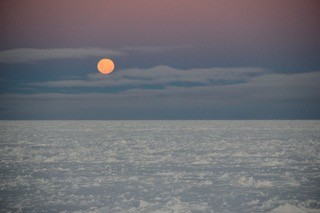 The Moreau Geomicrobiology Lab studies the processes by which certain microorganisms convert toxic ionic mercury (Hg2+) into the more toxic organometallic compound, methylmercury (CH3Hg+).
The Moreau Geomicrobiology Lab studies the processes by which certain microorganisms convert toxic ionic mercury (Hg2+) into the more toxic organometallic compound, methylmercury (CH3Hg+).This process occurs in aqueous environments from riverine sediments to the open ocean, but the mechanisms and triggers for microbial mercury methylation are still poorly understood.
- Bioremediation of mining impacted fresh water
Bioremediation of mine wastes
Gold mining produces toxic heavy metals and other chemical waste products.
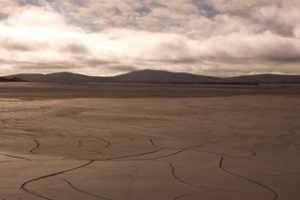
Some environmental microorganisms can biodegrade these contaminants into less harmful or non-toxic substances.
The Moreau Geomicrobiology Lab applies both cultivation-based and molecular biology approaches to developing new biotechnologies for mitigating mining impacts on soil and groundwater
Plant and Soil Microbiology
- Understanding the transmission of antibiotic resistance in agro-ecosystems
Funded by the ARC – DP170103628, $399,800
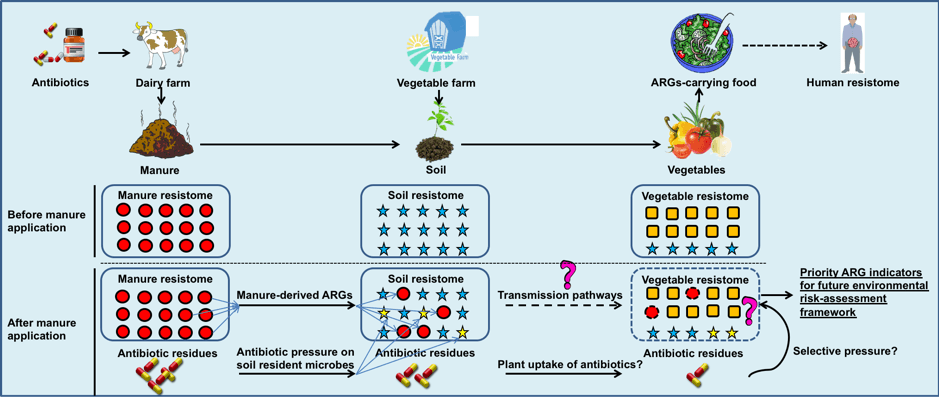 The emerging spread of antibiotic resistance genes (ARGs) represents a serious threat to human health. However, we have very limited knowledge about the pathways and mechanisms for transmission of ARGs in the environment. This project will use advanced molecular approaches to investigate all the major classes of ARGs in typical vegetable farms and animal manure, and to explore the major routes for transmission of ARGs from manure to soil and from rhizosphere to the vegetable surfaces and endophytic bacterial communities. The results will be integrated to identify the priority ARGs indicators with high likelihood of spread into food chain, and contribute to the development of management options to tackle environmental antibiotic resistance.
The emerging spread of antibiotic resistance genes (ARGs) represents a serious threat to human health. However, we have very limited knowledge about the pathways and mechanisms for transmission of ARGs in the environment. This project will use advanced molecular approaches to investigate all the major classes of ARGs in typical vegetable farms and animal manure, and to explore the major routes for transmission of ARGs from manure to soil and from rhizosphere to the vegetable surfaces and endophytic bacterial communities. The results will be integrated to identify the priority ARGs indicators with high likelihood of spread into food chain, and contribute to the development of management options to tackle environmental antibiotic resistance.Project team: Jim He (Project leader), Hangwei Hu (Lead researcher), and external partners
- Soil microbial indicators for efficient use of nitrification inhibitors
Funded by the ARC – LP160101134, $237,000
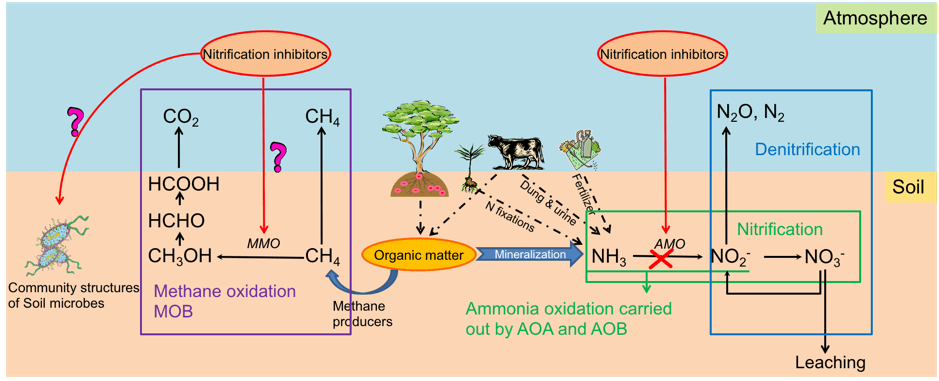 Nitrification inhibitors are one tool widely used to improve nitrogen fertiliser efficiency and reduce greenhouse gas nitrous oxide emissions. However their effectiveness is variable across soil types and one possible reason is the different microbial communities that exist in these soils. The project addresses the key knowledge gaps of interactions between the nitrification inhibitors and the soil functional microbial communities. The project aims to fundamentally improve our understanding of the efficiency and governing factors of the nitrification inhibitors in different agricultural soils, and thus provide guidance to develop sound management strategies to improve fertiliser nitrogen use efficiency in Australian Agricultural soils.
Nitrification inhibitors are one tool widely used to improve nitrogen fertiliser efficiency and reduce greenhouse gas nitrous oxide emissions. However their effectiveness is variable across soil types and one possible reason is the different microbial communities that exist in these soils. The project addresses the key knowledge gaps of interactions between the nitrification inhibitors and the soil functional microbial communities. The project aims to fundamentally improve our understanding of the efficiency and governing factors of the nitrification inhibitors in different agricultural soils, and thus provide guidance to develop sound management strategies to improve fertiliser nitrogen use efficiency in Australian Agricultural soils.Project team: Jim He (Project leader), Helen Suter, Deli Chen and external partners.
- Reserving nitrogen in soils through microbial nitrate reduction to ammonium
Funded by the ARC – DP160101028, $248,000
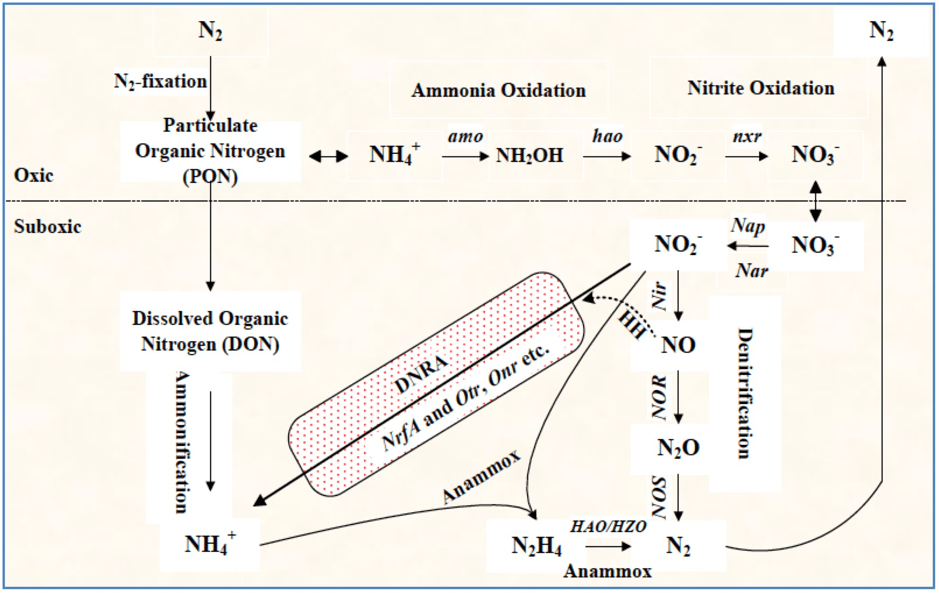 This project aims to identify those microbes able to transform nitrate to ammonium and thus increase soil nitrogen conservation. More than 50 per cent of the nitrogen in fertilisers applied to soils is lost into the environment, which is both a financial loss to farmers and a main anthropogenic source of nitrogen pollution. Some microbes can transform nitrate into ammonium through dissimilatory reduction (DNRA) and thus increase soil nitrogen retention. However, the DNRA process and the responsible microbial groups remain largely unknown. This project plans to use isotope tracing and biomolecular approaches to identify those DNRA microbial groups and elucidate the DNRA reaction process. The findings may support the use of DNRA to improve soil nitrogen.
This project aims to identify those microbes able to transform nitrate to ammonium and thus increase soil nitrogen conservation. More than 50 per cent of the nitrogen in fertilisers applied to soils is lost into the environment, which is both a financial loss to farmers and a main anthropogenic source of nitrogen pollution. Some microbes can transform nitrate into ammonium through dissimilatory reduction (DNRA) and thus increase soil nitrogen retention. However, the DNRA process and the responsible microbial groups remain largely unknown. This project plans to use isotope tracing and biomolecular approaches to identify those DNRA microbial groups and elucidate the DNRA reaction process. The findings may support the use of DNRA to improve soil nitrogen.
- Fungal Biodiversity
 The fungal kingdom are likely the most species rich group of microbes on earth, yet we have described less than 3% of all estimated species, and have only a limited understanding of how fungi contribute to the many environments in which they are found. From the species that have been studied, it is clear that fungi are critical for nutrient cycling and in interaction with plants and other microbes.
The fungal kingdom are likely the most species rich group of microbes on earth, yet we have described less than 3% of all estimated species, and have only a limited understanding of how fungi contribute to the many environments in which they are found. From the species that have been studied, it is clear that fungi are critical for nutrient cycling and in interaction with plants and other microbes.We are interested in fungal diversity from two perspectives. First is the impact of fungi and other microbes on disease in agricultural settings, in our case how other microbes impact the major diseases that impact the Australian canola (Brassica napus) industry. Second, is with colleagues at the Royal Botanic Gardens Victoria we are investigating the diversity and distribution of some of the poorly understood fungal taxa.
Contact: Dr Alexander Idnurm at the Mycology Lab
Marine Microbiology
- Manipulation of microbes to assist coral adaptation to climate change
Funded by the ARC – DP160101468, $494,700 (van Oppen and Blackall) and FL180100036, $3,011,916 (van Oppen)
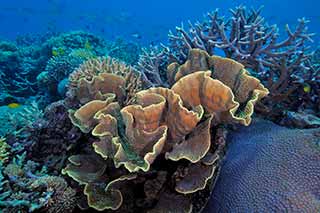 Our group is called the Marine Microbial Symbiosis group. We explore how corals interact with their associated microbial communities, and attempt to augment the capacity of corals to tolerate stress by manipulating these communities. Our research aims to support development of novel coral reef restoration approaches.
Our group is called the Marine Microbial Symbiosis group. We explore how corals interact with their associated microbial communities, and attempt to augment the capacity of corals to tolerate stress by manipulating these communities. Our research aims to support development of novel coral reef restoration approaches.We use the sea anemone Exaiptasia pallida as a model animal, and focus on the role of prokaryotes and the algal symbiont Symbiodinium. The approaches used to manipulate microbial communities include use of probiotics, experimental evolution and genetic engineering.
See our Recent publication: Damjanovic K, Blackall LL, Webster NS, van Oppen MJH (2017) The contribution of microbial biotechnology to mitigating coral reef degradation. Microbial Biotechnology, doi:10.1111/1751-7915.12769.
Contacts: Laureate Fellow Prof Madeleine van Oppen @ Google Scholar and EMRI Director Prof Linda Blackall @ Google Scholar.
Photo: Australian Institute of Marine Science.
- Fluid dynamics of corals
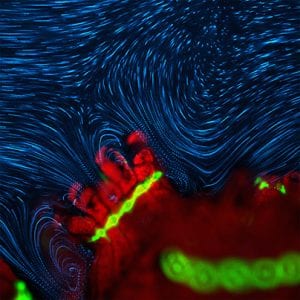 Fundamental processes underpinning the health and function of corals such as nutrient uptake, oxygen exchange and bacterial infection occur at the microscale, yet we still largely lack a quantitative understanding of the governing transport processes. The cilia that corals use for feeding and cleansing also generate dramatic vortical flows, which affect mass transport and may provide a barrier against infection. My research investigates the nature and consequences of these active vortical flows. I use state of the art visualisation of flows, tracking of individual bacterial cells, and mathematical modelling to quantitatively understand the coupling between ciliary flows, nutrient and oxygen dynamics, and pathogen behaviour.
Fundamental processes underpinning the health and function of corals such as nutrient uptake, oxygen exchange and bacterial infection occur at the microscale, yet we still largely lack a quantitative understanding of the governing transport processes. The cilia that corals use for feeding and cleansing also generate dramatic vortical flows, which affect mass transport and may provide a barrier against infection. My research investigates the nature and consequences of these active vortical flows. I use state of the art visualisation of flows, tracking of individual bacterial cells, and mathematical modelling to quantitatively understand the coupling between ciliary flows, nutrient and oxygen dynamics, and pathogen behaviour.
- Micro-niches in the coral skeleton
Coral reefs are spectacular ecosystems held together by calcium carbonate structures secreted by corals (their skeletons). The diversity, spatial structure and functions of the microbiota residing in the skeleton underneath the coral tissue are barely understood.
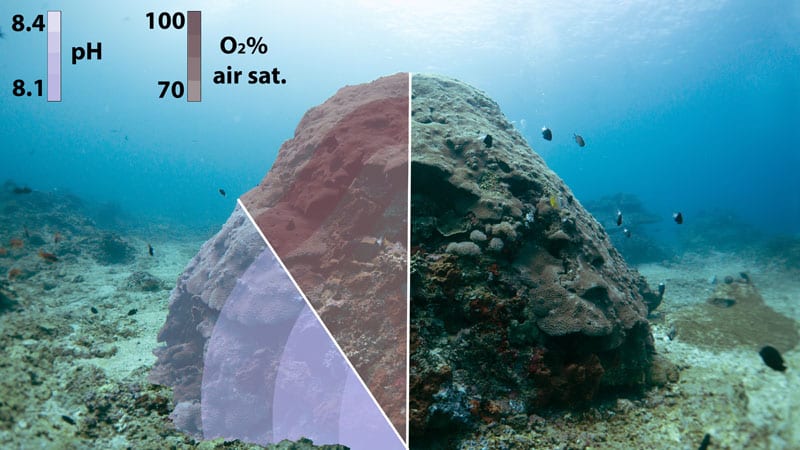
We study the coral skeleton microbiome, focusing on the interactions between microbiota and the steep environmental gradients in oxygen, light and other nutrients present in the skeleton. We use planar optode imaging to visualise gradients in physicochemical properties and characterise of the microbial communities at different positions along the environmental gradients using molecular techniques.
Contact: Heroen Verbruggen at Google Scholar
- Endosymbiosis in the algal world
Microbial endosymbiosis, i.e. symbiosis where one cell lives inside another cell, is very commonly found in nature. These partnerships range from transient, fairly loose associations to well-established symbioses where neither of the partners can live without the other.
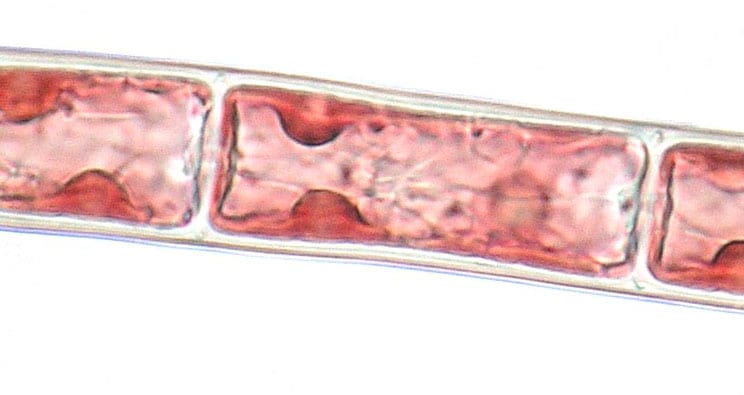
We are interested in many aspects of microbial symbiosis in marine algae. We characterise the nature and evolution of bacterial endosymbionts living within seaweeds and the origins of algal chloroplasts through endosymbiosis. We use a combination of microscopy, metabarcoding and whole-genome sequencing to characterise the partners, how they interact, and how their associations have evolved through geological time.
Contact: Heroen Verbruggen at Google Scholar
- Microbiologically influenced corrosion
Microbiologically influenced corrosion
 Accelerated low water corrosion (ALWC) is a type of microbiologically influenced corrosion that substantially increases damage to metal structures in seawater around the low tide level. ALWC is a costly global issue.
Accelerated low water corrosion (ALWC) is a type of microbiologically influenced corrosion that substantially increases damage to metal structures in seawater around the low tide level. ALWC is a costly global issue.We hypothesise that the functional features of microbes, including their propensity to attach to metal surfaces and their metabolic pathways, facilitate ALWC. We aim to identify the microbes in ALWC tubercles with the aim of better understanding this phenomenon.
A recent paper: In Microbiology Australia, September 2018. Development of a laboratory test for microbial involvement in accelerated low water corrosion. By Scott Wade and Linda Blackall
Contact: Linda Blackall @ Google Scholar
Food Microbiology
- Microbial diversity and interactions in food ecosystems: from model to meal
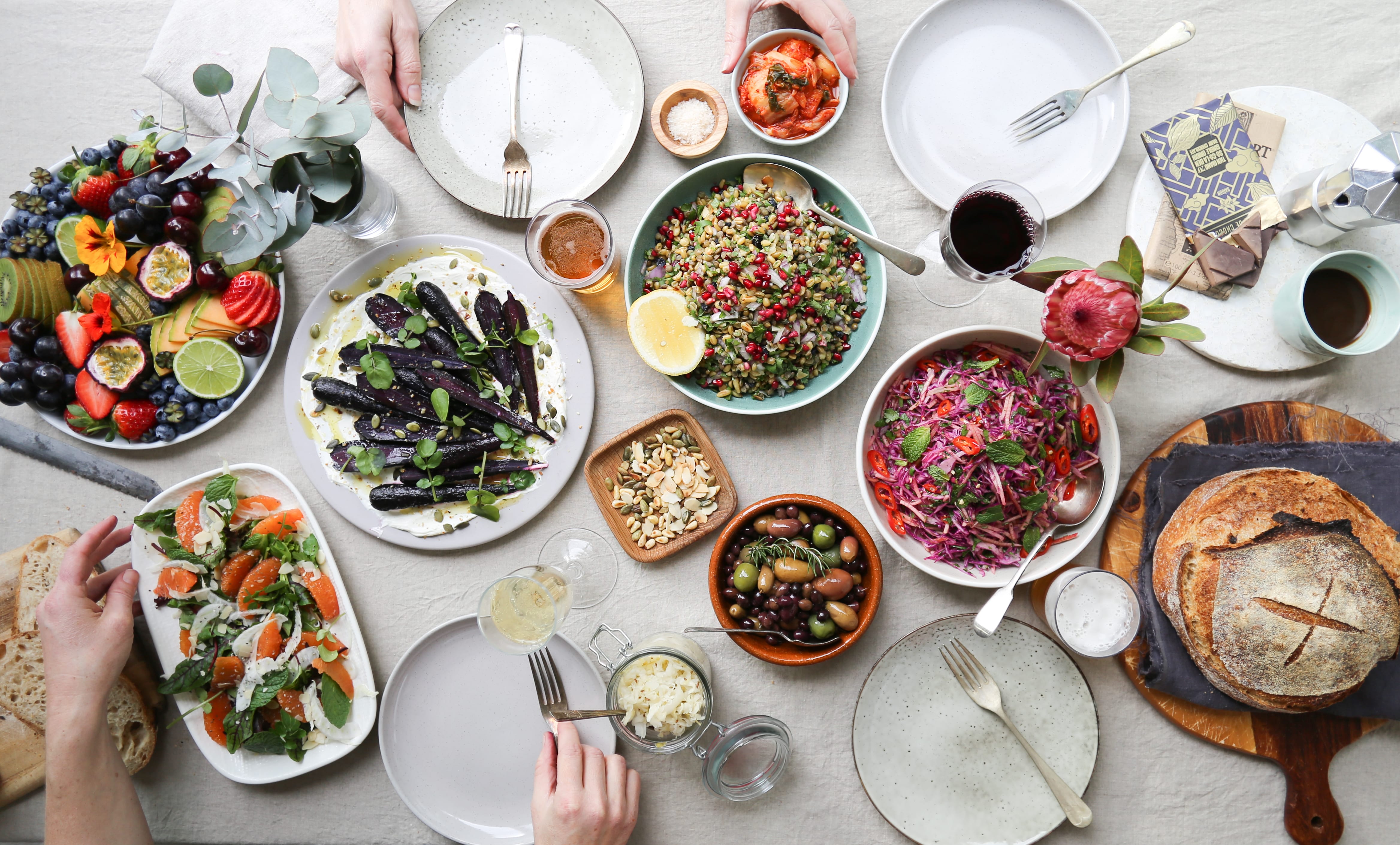 Why does food taste better when a community of microbes is present? What can interactions between microorganisms tell us about wider ecological systems? The Howell lab studies yeast and bacterial communities in a wide variety of food ecosystems, including bread, beer, wine and chocolate. Analytical methods help us to understand the biochemical pathways of yeasts and bacteria that influence flavour production and draws these together with broader ecological and social understandings of taste, health and sustainability.
Why does food taste better when a community of microbes is present? What can interactions between microorganisms tell us about wider ecological systems? The Howell lab studies yeast and bacterial communities in a wide variety of food ecosystems, including bread, beer, wine and chocolate. Analytical methods help us to understand the biochemical pathways of yeasts and bacteria that influence flavour production and draws these together with broader ecological and social understandings of taste, health and sustainability.Contact: Dr Kate Howell
Computational Statistics and Microbiology
- Development and application of multivariate methods for microbiome studies
There are major statistical and computational challenges in analysing microbial communities that currently hinder the potential of microbiome research to substantially advance biomedical understanding. We are currently expanding mixMC to better characterise and understand important microbiome-host interactions. Some of our methods developments aim at addressing batch effects in microbiome experiments and analyse scarce temporal sampling in time course studies.
We analyse microbiome datasets from our collaborators for a wide range of studies, including investigating the role of gut and oral microbiome in spondyloarthropathy diseases, the development of intestinal or salivary microbiota in toddlers and infants, investigating the gut-brain crosstalk in Huntington’s disease.
 Contact: NHMRC Career Development Fellow Dr Kim-Anh Lê Cao @ Google Scholar
Contact: NHMRC Career Development Fellow Dr Kim-Anh Lê Cao @ Google ScholarSee a publication by Kim-Anh:
MixMC: A Multivariate Statistical Framework to Gain Insight into Microbial Communities
- Development of the mixOmics R toolkit package
mixOmics is one of the few
 R package dedicated to the integration of multiple ‘omics data (19 novel methodologies implemented so far, amongst which 13 were developed by our lab) and with an increasing uptake from the research community. The package has been downloaded > 29K times in 2017, (R CRAN package download logs). Programming developments are on-going for interactive web interfaces, and efficient programming for large-scale studies. Check our our recent publication (Rohart et al. 2017b) and a poster that gives an overview of this large project. The mixOmics team run multiple day workshops for an introduction to multivariate projection-based methods for data integration using mixOmics, see our website www.mixOmics.org for news and tutorials.
R package dedicated to the integration of multiple ‘omics data (19 novel methodologies implemented so far, amongst which 13 were developed by our lab) and with an increasing uptake from the research community. The package has been downloaded > 29K times in 2017, (R CRAN package download logs). Programming developments are on-going for interactive web interfaces, and efficient programming for large-scale studies. Check our our recent publication (Rohart et al. 2017b) and a poster that gives an overview of this large project. The mixOmics team run multiple day workshops for an introduction to multivariate projection-based methods for data integration using mixOmics, see our website www.mixOmics.org for news and tutorials.Contact: NHMRC Career Development Fellow Dr Kim-Anh Lê Cao @ Google Scholar – See a publication by Kim-Anh:
mixOmics: An R package for ‘omics feature selection and multiple data integration
Mathematical Microbiology
- Microbial fluid dynamics
Microbial fluid dynamics
 Fluid mechanics at the microscale governs a myriad of physical, chemical and biological processes in the environment.
Fluid mechanics at the microscale governs a myriad of physical, chemical and biological processes in the environment.We apply advanced video-microscopy and microfluidic techniques to directly visualise dynamic processes at the single cell level, from the collective beating of cilia to the active search behaviour of motile bacteria.
These results will uniquely inform the development of mathematical models with far-reaching ecological insights.
Contact: DECRA Fellow Dr Douglas Brumley @ Google Scholar
Look at the EMRI Committees in the EMRI homepage to see the Bioinformatics and Statistics (B&S) Committee membership. Please feel free to contact the B&S Committee Chair, Heroen Verbruggen (heroen.verbruggen@unimelb.edu.au) with any suggestions and ideas for this page.
EMRI_Bioinformatics_Training_2019 for Graduate Researchers in Microbiomes – friendly lessons and guidance just for you! First session is Tuesday 20th August, 3-5pm in BioSciences 1, Room G26. Come along even if you don’t know that you might need this.
Bookmark the Computational Biology Research Initiative (CBRI) webpage for updates on their seminars, courses and workshop. Also subscribe to the CBRI newsletter run by Andrew Siebel.
- Bioinformatics and Statistics News
- Melbourne Research Bazaar 20th-21st February 2019.
- Research Platform Services e.g., for Python, RStudio.
- COMBINE - a student-run Australian organisation for students in computational biology, bioinformatics, and related fields.
- The Australian Bioinformatics and Computational Biology Society Inc (ABACBS).
- Melbourne Bioinformatics – providing bioinformatics support for all researchers and students in Melbourne’s biomedical and biosciences precinct.
- Microbial Genomics Group.
- The Australian Environmental Microbiome Research Data Cloud and blog - with 10th December update
- Melbourne Integrative Genomics.
- Computational Biology Research Initiative.
- Bioinformatic Training Information
- EMRI_Bioinformatics_Training_2019 – for Graduate Researchers in Microbiome work.
- Software Carpentry – teaching basic lab skills for research computing.
- Data Carpentry – universal data literacy.
- Melbourne Research Bazaar 20th-21st February 2019.
- Digital Research Skills Cookbook.
Weekly News
For news relevant to EMRI, see the School of BioSciences events and Melbourne Integrative Genomics events.
-
2020 PhD Scholarships Available Now!
Two (2) fully funded Strategic Research Training Program (SRTP) Scholarships are available for students to undertake a PhD in a novel, interdisciplinary field in Environmental Microbiology. Please visit this page for possible projects and application instructions.
News -
Bioinformatic training for EMRI Graduate Researchers – look here!
EMRI_Bioinformatics_Training_2019
News -
New publication by EMRI Member John Moreau
Liam P. Spurr, Mathew P. Watts, Han M. Gan and John W. Moreau (EMRI Member). Biodegradation of thiocyanate by a native groundwater microbial consortium. Peer J; DOI 10.7717/peerj.6498
News -
EMRI member Laureate Professor Madeleine van Oppen is featured in Science today (21st March, 2019). Read the exciting story here. "...Amid the controlled chaos, coral geneticist Madeleine van Oppen stands like a coach directing her team. A doctoral student from Van Oppen's lab at the University of Melbourne in Australia approaches with an update. One species of coral appears ready to …
News -
Kim-Anh Lê Cao wins prestigious Moran Medal from the Australian Academy of Science
EMRI member Dr Kim-Anh Lê Cao was awarded the prestigious early career Moran Medal Lê Cao 2019 from the Australian Academy of Science - congratulations!
News -
EMRI Postgrad to deliver PhD Completion Seminar – 8th March
EMRI affiliate Katarina Damjanovic will deliver her PhD Completion seminar on Friday 8th March - see details Katarina Damjanovic Completion Seminar 8Mar19.
News -
R skills workshops – 13th November
Melbourne Integrative Genomics will be running a day of R skills workshops on Tuesday 13th November. These are open to all and are heavily discounted for UoM staff and students. See details below. Note that registrations close COB today. Register now to reserve your spot. R skills workshops R is an interactive environment for data analysis and statistical modelling. When performing data analysis, you typically …
News -
COMBINE positions open
Do you want to be more involved in the COMBINE community? We are excited to announce that nominations for 2019 COMBINE positions are now open! Joining the COMBINE committee is a great way to improve your leadership skills, build your confidence and help the Australian student community (and it also looks great on your CV!). COMBINE aims to create a vibrant Australian bioinformatics and computational …
News -
Public Event – Keeping under 1.5°C: are we doing enough to avoid dangerous climate change? Thursday 11 October, 6:00pm to 7:45pm at Univ Melb
Public Event – Keeping under 1.5°C: are we doing enough to avoid dangerous climate change? Panelists: Prof Ove Hoegh-Guldberg, Director of the Global Change Institute (GCI) and Professor of Marine Science, The University of Queensland (Co-Author of the IPCC Special Report Global Warming of 1.5°C) Prof Ross Garnaut AC, Professorial Fellow in Economics at the University of Melbourne, Chair of the Energy Transition …
News -
High Performance Computing Courses 11 and 18 October at Uni Melb
The University of Melbourne is offering three courses in October to help new and experienced researchers make use of the high performance computing facilities. * Introduction to Linux and HPC Thu. 11 October 2018 10:00 am – 3:00 pm If your desktop system is too slow for your "big datasets" or the problems too complex, High Performance Computing (HPC) is the tool you …
News -
Microbiome Analysis with QIIME2 @ Monash Uni, 14-16 November, 2018
Workshop: Microbiome Analysis with QIIME2 Registration now open! Micromon (Monash MNHS), in conjunction with the EPHM Lab (Monash Engineering) and the School of Biological Sciences, would like to invite you to register for our upcoming three-day workshop and symposium. A half-day symposium will provide selected attendees with the opportunity to talk briefly about their work in a relaxed atmosphere with a combined question and discussion session. …
News -
Microbial Ecology-Environmental Microbiology in Victoria
Microbial Ecology-Environmental Microbiology (MEEM) in Victoria What: Microbial Ecology-Environmental Microbiology (MEEM) in Victoria (4 ECR speakers, 3 PhD speakers; afternoon tea, post meeting social event) When: Thursday 27th September, 2018 from 14:00-17:15 Where: La Trobe city campus, 360 Collins Street , Melbourne (Room: 360C-2.10). Why: Promote communication/collaboration for those interested in microbial ecology, environmental microbiology, evolutionary microbiology, and related disciplines Sponsor: Australian Society for Microbiology Organisers: Assoc …
News
EMRI Director
T: (03) 83440872 | M: 0424 186 346
E: linda.blackall@unimelb.edu.au
Skype: linda.blackall1
Tw: @crazycatzzz
W: Google Scholar
